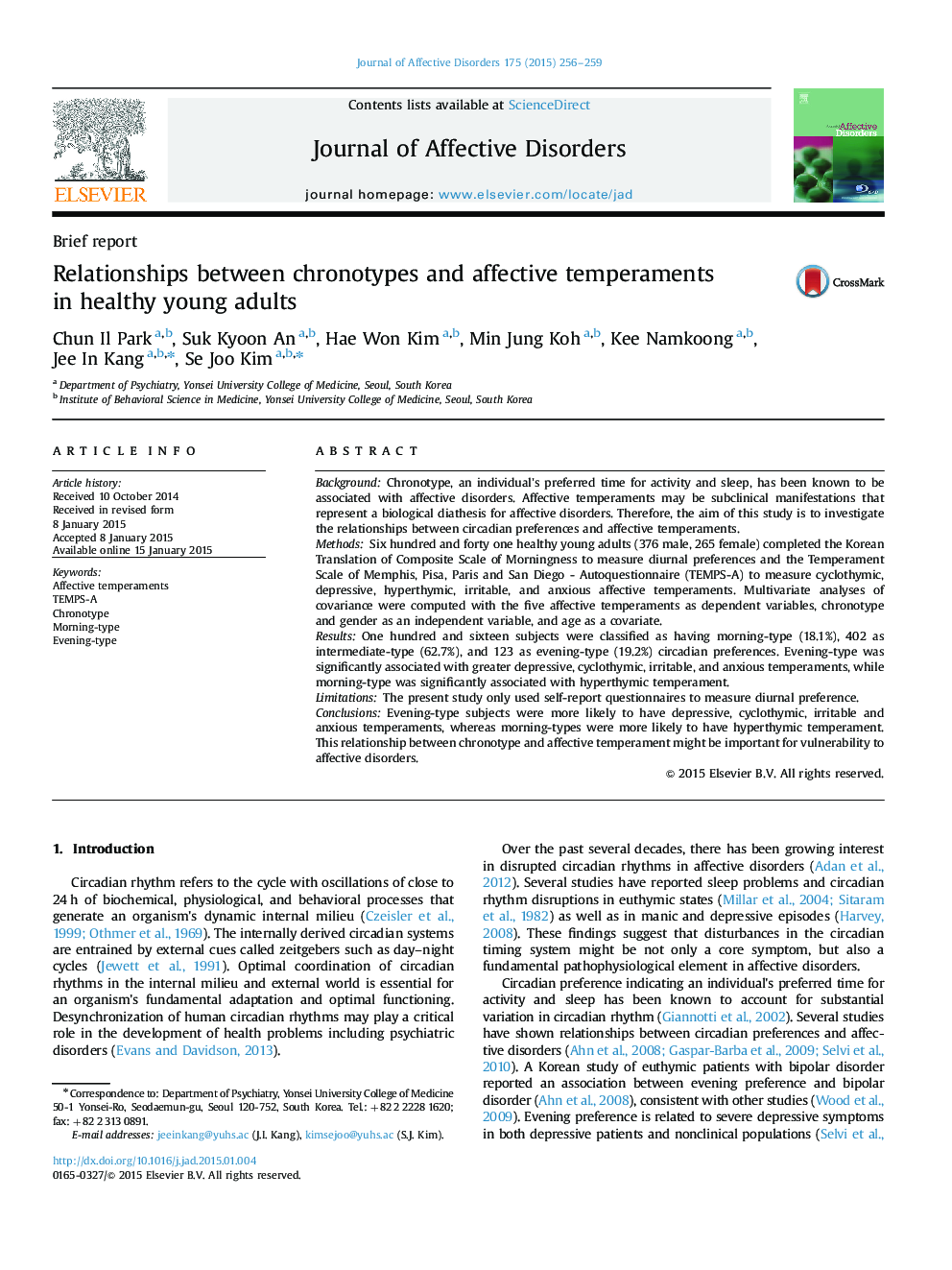| Article ID | Journal | Published Year | Pages | File Type |
|---|---|---|---|---|
| 6231976 | Journal of Affective Disorders | 2015 | 4 Pages |
BackgroundChronotype, an individual׳s preferred time for activity and sleep, has been known to be associated with affective disorders. Affective temperaments may be subclinical manifestations that represent a biological diathesis for affective disorders. Therefore, the aim of this study is to investigate the relationships between circadian preferences and affective temperaments.MethodsSix hundred and forty one healthy young adults (376 male, 265 female) completed the Korean Translation of Composite Scale of Morningness to measure diurnal preferences and the Temperament Scale of Memphis, Pisa, Paris and San Diego - Autoquestionnaire (TEMPS-A) to measure cyclothymic, depressive, hyperthymic, irritable, and anxious affective temperaments. Multivariate analyses of covariance were computed with the five affective temperaments as dependent variables, chronotype and gender as an independent variable, and age as a covariate.ResultsOne hundred and sixteen subjects were classified as having morning-type (18.1%), 402 as intermediate-type (62.7%), and 123 as evening-type (19.2%) circadian preferences. Evening-type was significantly associated with greater depressive, cyclothymic, irritable, and anxious temperaments, while morning-type was significantly associated with hyperthymic temperament.LimitationsThe present study only used self-report questionnaires to measure diurnal preference.ConclusionsEvening-type subjects were more likely to have depressive, cyclothymic, irritable and anxious temperaments, whereas morning-types were more likely to have hyperthymic temperament. This relationship between chronotype and affective temperament might be important for vulnerability to affective disorders.
